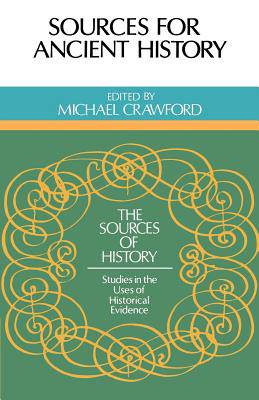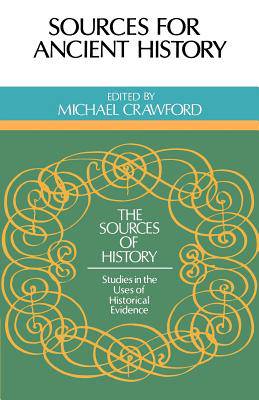
- Afhalen na 1 uur in een winkel met voorraad
- Gratis thuislevering in België vanaf € 30
- Ruim aanbod met 7 miljoen producten
- Afhalen na 1 uur in een winkel met voorraad
- Gratis thuislevering in België vanaf € 30
- Ruim aanbod met 7 miljoen producten
Zoeken
€ 82,45
+ 164 punten
Omschrijving
If a scholar wishes to create a picture of a topical society in all its aspects, there is little of what he needs to know that he cannot know, although there may still be much that he cannot understand. For the history of Greece and Rome, there is a great deal that is simply unknowable. From the end of the archaic age of Greece, there is an unbroken sequence of works by Greek and, later, Roman historians down to the end of antiquity. Their vision and range of interest were often limited and much of what they produced has been lost. Some help may be derived from the documentary material supplied in antiquity, material that was the product of officials organising public activities, or heads of families organising their affairs, or individuals leaving their mark on the world. Beyond this, the evidence of archaeology and numismatics may also be helpful. The four essays in this book set out to characterise the nature of the ancient literary tradition, the inscriptional material, the archaeological and numismatic evidence and to explain how and for what purposes they may be used.
Specificaties
Betrokkenen
- Auteur(s):
- Uitgeverij:
Inhoud
- Aantal bladzijden:
- 252
- Taal:
- Engels
- Reeks:
Eigenschappen
- Productcode (EAN):
- 9780521289580
- Verschijningsdatum:
- 27/01/1984
- Uitvoering:
- Paperback
- Formaat:
- Trade paperback (VS)
- Afmetingen:
- 142 mm x 217 mm
- Gewicht:
- 331 g

Alleen bij Standaard Boekhandel
+ 164 punten op je klantenkaart van Standaard Boekhandel
Beoordelingen
We publiceren alleen reviews die voldoen aan de voorwaarden voor reviews. Bekijk onze voorwaarden voor reviews.











